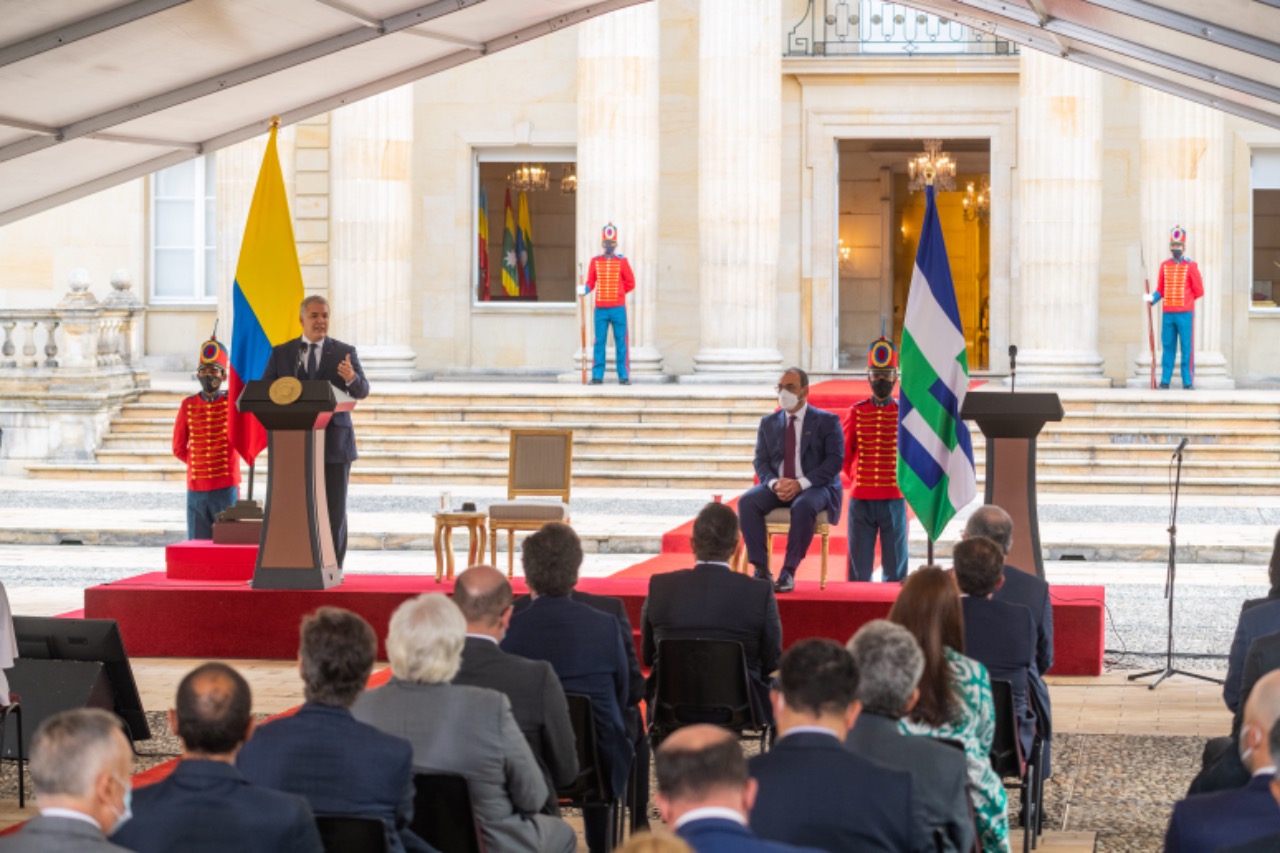Sergio Díaz-Granados begins his term as CAF's Executive President
Along with Iván Duque Márquez, president of Colombia, and as his first public act as president of CAF, Sergio Díaz-Granados analyzed the role of multilateral banks in supporting the economic reactivation of countries in the region and the need for them to expand their impact on Latin American development.
During the event, which was held at Casa de Nariño, Duque and Díaz-Granados highlighted the importance of a Colombian occupying the presidency of CAF for the first time in history, and predicted a new era based on a more dynamic institution with greater impact on regional integration and international development.
"Our institution is the most valuable asset in the field of regional integration, something that obliges me to assume this responsibility with the purpose of expanding such a vital collective heritage, so that we may be increasingly effective in the search for our peoples’ well-being ," said Díaz-Granados, CAF's executive president.
Meanwhile, Iván Duque weighed up Díaz-Granados’ capabilities and professional career and assured us that his nomination was an example of the consensus that Latin America needs.
"We need a CAF for all countries, regardless of political differences. Today there is no doubt that debt levels of emerging countries exceed 95% of GDP. We have yet to emerge from the pandemic, and the demand for resources will continue to increase," Duque said.
In this regard, he assured us that "the capitalization of the institution is a duty. We must do this by opening up innovative instruments that will allow non-borrowing countries to have a greater subscribed capital and therefore a greater credit capacity".
According to Díaz-Granados, CAF's challenges in the coming years are to consolidate and strengthen the relationship with member countries and invite new partners to join Latin American development, as well as to get closer to the private sector in order to channel new investments.
CAF is a leading institution in Latin America and one of the main sources of multilateral funding for the region, with annual approvals in excess of USD 14 billion for inclusive development and regional integration. Since it started operations in 1970, the institution has approved more than USD 200 billion aimed at improving quality of life for Latin Americans.
CAF's more recent content

CAF, ECLAC, IDB and PAHO Promote Sustainable Development in the G20
The Regional Organizations of the Americas congratulate Brazil on its successful G20 Presidency, highlighting its leadership on key issues such as poverty, governance, and climate change. They also reaffirm their commitment to actions that promote equity and development in the region.
Urgent Call for Action to Safeguard Caribbean SIDS at CAF Symposium
As the global community grapples with the escalating climate crisis, Caribbean Small Island Developing States (SIDS) are running out of time to secure critical investments and support needed to strengthen their economies and protect vulnerable communities from the intensifying impacts of climate change. With the window to take decisive action rapidly shrinking, CAF - Development Bank of Latin America and the Caribbean, in partnership with the Commonwealth Secretariat and the Antigua and Barbuda High Commission, brought together key stakeholders for a symposium in London to address the critical vulnerabilities Caribbean SIDS face.


